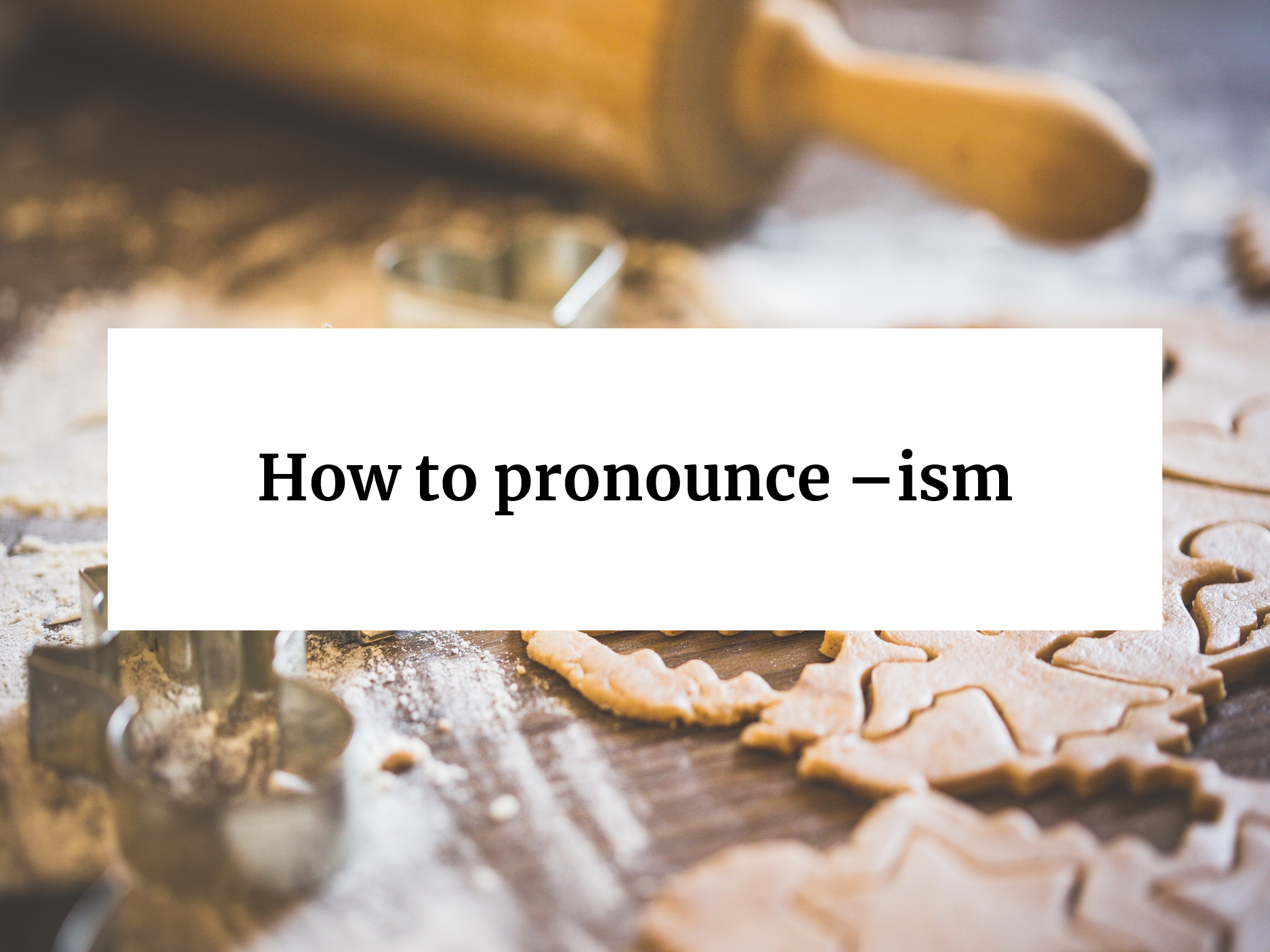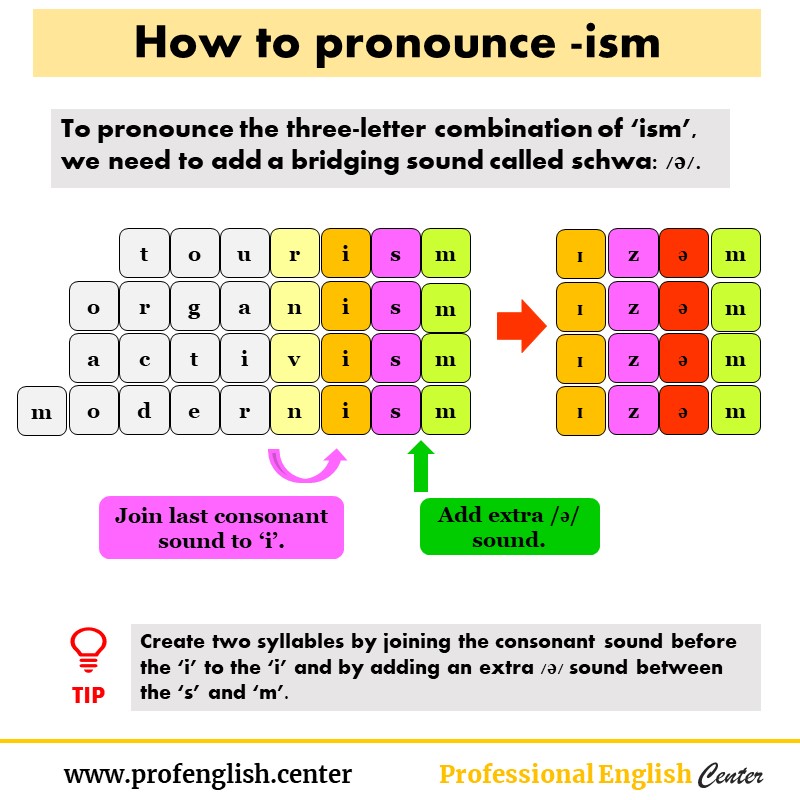Spanish words that end in -ismo are actually quite easy to say because the there are two vowel sounds, one before ‘sm’, and the other after it. However, in English we don’t have the luxury of an ‘o’ sound to help us say ‘sm’. Luckily, the solution is very easy: we have to connect ‘s’ and ‘m’ with an extra sound. This sound is ə, called the schwa. There is no letter for the schwa in the alphabet, therefore we have to use its phonetic symbol, the ə. Listen to the schwa: /ə/ The schwa sound is arguably the most important vowel sound in the English language. We use it many different situations: It is often called a ‘lazy sound’ because you don’t have to open your mouth much. It is made in the back of the mouth by using the back of your tongue. It is made between the Spanish ‘o’ and ‘a’ sounds. Try to say ‘o’ and ‘a’ in Spanish. The difference is quite big, isn’t it? Now, say ‘a’ first. Then close your mouth just a tiny little bit and raise the back of your tongue a little, too. Can you feel the difference? Listen and repeat: /a/ – /ə/ It can be found in many words in which you can already pronounce it very well. Listen and repeat: teacher, church, speaker, amazing, fewer, the, sofa Now that you know how to say the ə sound, let’s look at -ism again. Although we write only three letters (ism), we pronounce four sounds by putting a schwa between the consonants. Therefore, -ism becomes -i-s-ə-m. Listen and repeat: -ism = /ɪzəm/ The difference between Spanish -ismo and English -ism
What is the schwa?
How to make the schwa sound?
Pronouncing -ism
Does your tongue twist when you have to pronounce the word ‘tourism’? My students regularly ask me to explain how to say words that end in -ism. Therefore, in this short article, I will explain you how to pronounce words that end in -ism.
Professional English
Online English Language Trainer for busy professionals
Madrid
Spain
Opening Hours
Monday 07:00–23:00
Tuesday 07:00–23:00
Wednesday 07:00–23:00
Thursday 07:00–23:00
Friday 07:00–23:00
Saturday 08:00–17:00
Sunday Closed





